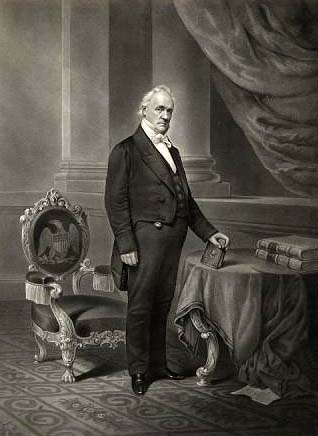Proslavery Democrat James Buchanan defeats John C. Frémont (the first Republican presidential nominee) and former-President Millard Fillmore (now of the American or "Know-Nothing" Party) in the 1856 elections. In the election on November 6, Buchanan has the advantage of having been out of the country when the Kansas-Nebraska Act passed, thus avoiding being tied to either side of that divisive legislation. Even before his inauguration, Buchanan urges the U.S. Supreme Court to rule against Dred Scott in Scott v. Sandford, mistakenly believing that the court case will settle the slavery debate "speedily and finally." Buchanan proves unable to calm America's sectional crisis, as he favors the entry of Kansas into the Union as a slave state and further alienates the Northern wing of his own Democratic Party. Stephen Douglas, a Northern Democrat, will run against Buchanan and split the party into its Northern and Southern halves in the 1860 election. By the end of Buchanan's term on March 4, 1861, the Union is falling apart and war is on the horizon.
Wednesday, March 4, 1857


